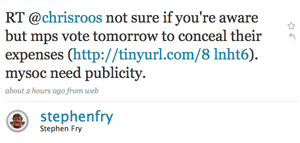As reported on the Journalism.co.uk main site, Washington newspaper rivals have joined forces to publish shared links relating to extreme flooding in the Western Washington region, in one of the first examples of ‘networked link journalism’ in action.
Journalism.co.uk contacted Paul Balcerak, assistant editor of dynamic media at Sound Publishing, publisher of the PNWLocalNews.com site.
Further to his comments in the main piece, Balcerak shares here his thoughts on using Publish2, the link journalism site and application:
What does it have over other link applications (e.g Ma.gnolia/Delicious)?
“The big selling point for me is the create-a-widget that lets you bundle links by tag and embed them (via Javascript) on your web page. Sure, if we wanted to build our own Delicious widget we could have done that, but this was already there for us and allowed us to work a lot faster.”
What benefit is it to you to work with your competitors?
“It made our jobs a lot easier, too. Pnwlocalnews is an aggregate site for all the sites under the Sound Publishing umbrella (about 35 of them, which all represent small, community newspapers).
“Our newsroom staffs aren’t huge – some consist of only a couple or few people – and to be frank, there’s just no way for us to have all the breaking news, all the time.”
At the moment a lot of US regional journalists seem to be using it (hasn’t really taken off in UK yet) – do you think it suits that environment particularly?
“I can’t really say, as I’m really not aware of how the environment outside the U.S. differs.
“I think part of it might be that it’s sort of this ‘Delicious for Journalists,’ which appeals to those who are hesitant to embrace ‘citizen journalism,’ or whatever we’re calling it. It’s more exclusive.
“For my part, it’s just another aggregate network that a ton of great journalists are on – why wouldn’t I be there?”
How could Publish2 improve its service for journalists?
“There are a few little things that could be improved (I can’t seem to find a search function to look up other people on the network) but I think the only real downside is that, well, it’s another aggregate network.
“It’s another username/password that you have to remember and log into everyday. If the Publish2 people ‘Who Make Things Happen’ could get it listed in Shareaholic or ShareThis, that might make it a little more convenient.”

